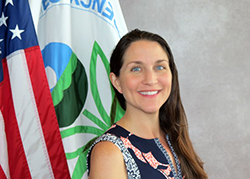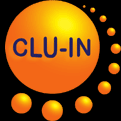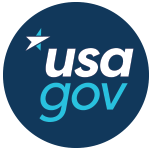Management Standards for Hazardous Waste Pharmaceuticals and Amendment to the Hazardous Waste Listing for Nicotine
Sponsored by: U.S. EPA Office of Resource Conservation and Recovery (ORCR)
In the fall of 2018, EPA finalized tailored and streamlined standards for managing hazardous waste pharmaceuticals that reduce the cost and compliance burden for the healthcare sector, while ensuring the safe management of hazardous waste pharmaceuticals. These changes provide regulatory certainty and national consistency on how the Resource Conservation and Recovery Act (RCRA) applies to the reverse distribution of prescription pharmaceuticals while incorporating flexibilities to accommodate current business practices.
With this rule EPA is also taking a common-sense regulatory approach to the disposal of Food and Drug Administration (FDA)-approved, over-the-counter nicotine replacement therapies (i.e., patches, gums and lozenges), which will no longer be considered hazardous waste when discarded.
Join us for a webinar to learn more about these regulatory changes.
Please see EPA's website for this rule for more information and to access additional resources: https://www.epa.gov/hwgenerators/management-pharmaceutical-hazardous-waste.
Accessibility, Recording, and Content Disclaimer
Rehabilitation Act Notice for Reasonable Accommodation
It is EPA's policy to make reasonable accommodation to persons with disabilities wishing to participate in the agency's programs and activities, pursuant to the Rehabilitation Act of 1973, 29 U.S.C. 791. Any request for accommodation should be made to at or , preferably one week or more in advance of the webinar, so that EPA will have sufficient time to process the request. EPA would welcome specific recommendations from requestors specifying the nature or type of accommodation needed. Please note that CLU-IN provides both alternate phone call-in options and closed captioning for all webinars, and requests for these specific accommodations are not necessary.
Webinar Recording
By participating in this CLU-IN webinar, you automatically agree to authorize recording of audio and visual content presented during this live event and consent to subsequent use of this recording in the public domain by the U.S. Environmental Protection Agency. This recording may include questions, comments and poll responses provided by you during the live event in addition to your name, voice, image or likeness. This recording will be made available after the conclusion of the live event as part of the CLU-IN webinar archives, and will remain available indefinitely. If you do not wish to consent to the recording, please do not join the live event, and contact Jean Balent at 202-566-0832 or balent.jean@epa.gov to discuss your concerns.
Content Disclaimer
This webinar is intended solely to provide information to the public. The views and opinions expressed as part of this webinar do not necessarily state or reflect those of the U.S. Environmental Protection Agency. It is not intended, nor can it be relied upon, to create any rights enforceable by any party in litigation with the United States, or to endorse the use of products or services provided by specific vendors. With respect to this webinar, neither the United States Government nor any of their employees, makes any warranty, express or implied, including the warranties of merchantability and fitness for a particular purpose, or assumes any legal liability or responsibility for the accuracy, completeness, or usefulness of any information, apparatus, product, or process disclosed, or represents that its use would not infringe privately owned rights.
Presenters:
Kristin Fitzgerald, U.S. EPA Office of Resource Conservation and Recovery (fitzgerald.kristin@epa.gov)
Kristin has been with the U.S. EPA for eighteen years, working primarily on hazardous waste generator issues. Kristin started working with the Resource Conservation and Recovery Act (RCRA) over twenty-five years ago, answering questions on the RCRA/Superfund Hotline. She holds a B.A. in Government from St. Lawrence University in New York and an M.S. in Environmental Science and Policy from George Mason University in Virginia.
Laura Stanley, U.S. EPA Office of Resource Conservation and Recovery (Stanley.Laura@epa.gov)
Laura has been an economist with the U.S. EPA for three years, working primarily on hazardous waste generator issues. She holds a B.S. in economics from James Madison University and an M.A. in economics from George Mason University.
Brian Knieser, U.S. EPA Office of Resource Conservation and Recovery (Knieser.Brian@epa.gov or 703-347-8769)
Brian started at EPA in 2016 in the hazardous waste recycling and generator program. Since then he has primarily worked on the Management Standards for Hazardous Waste Pharmaceuticals rulemaking, and implementation of the Hazardous Waste Generator Improvements rule. He has a B.S. from the College of William & Mary, and an M.S. from Johns Hopkins University.
Narendra Chaudhari, U.S. EPA Office of Resource Conservation and Recovery (Chaudhari.Narendra@epa.gov)
Narendra has been with EPA for almost 35 years. The first six years were with the Office of Pesticides and Toxic Substances (currently the Office of Chemical safety and Pollution Prevention) and the last 29 years with the Office of Solid waste (currently the Office of Resource Conservation and Recovery). He has worked primarily in the use of regulatory and deregulatory procedures for identifying hazardous waste under RCRA and application of hazardous waste listing regulations.
Moderator:
 Jean Balent, U.S. EPA Office of Superfund and Emergency Management (OSEM) (balent.jean@epa.gov or 202-566-0832)
Jean Balent, U.S. EPA Office of Superfund and Emergency Management (OSEM) (balent.jean@epa.gov or 202-566-0832)
Ms Balent is on the staff of the EPA's Technology Innovation and Field Services Division where she has worked to collect and disseminate hazardous waste remediation and characterization information since 2003. Ms Balent manages the Clean Up Information Network website and actively supports online communication and collaboration resources available to EPA. She formerly worked with the US Army Corps of Engineers Environmental Engineering Division in the Buffalo District. Ms Balent was also a member of the SUNY-Buffalo Groundwater Research Group where she constructed and tested large scale models of groundwater flow. Ms Balent has also conducted research relating to the Great Lakes, environmental remediation, and brownfields re-development. She holds a Bachelor's degree in environmental engineering from SUNY-Buffalo and a Master's degree in Information Technology from AIU.
Webinar Slides and References:
Webinar Slides and References:
Additional Resources:
Thank you for participating in our webinar. We would like to receive any feedback you might have that would make this service more valuable.
Help & FAQs
Adobe Connect Resources
This seminar will be delivered through Adobe® Connect™ with streaming audio delivered through your computer speakers or headphones. We strongly encourage you to test your computer or mobile app prior to attending this seminar using the links below. Technical support on the day of the seminar will be very limited and subject to significant delays.
- Adobe® Connect™ Meeting Connection Diagnostic & Troubleshooting Tips
- Adobe® Connect™ Mobile Apps
- Adobe® Connect™ Visual Quick Start Guide (754KB/2pp/PDF)
Rehabilitation Act Notice for Reasonable Accommodation
It is EPA's policy to make reasonable accommodation to persons with disabilities wishing to participate in the agency's programs and activities, pursuant to the Rehabilitation Act of 1973, 29 U.S.C. 791. Any request for accommodation should be made to at or , preferably one week or more in advance of the seminar, so that EPA will have sufficient time to process the request. EPA would welcome specific recommendations from requestors specifying the nature or type of accommodation needed, such as closed captioning.
with any additional questions




